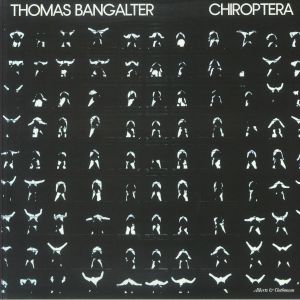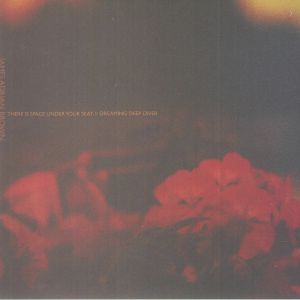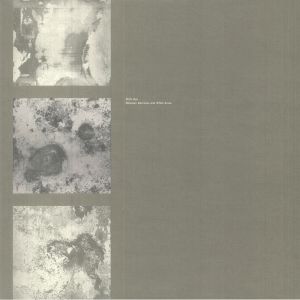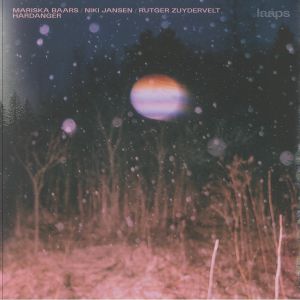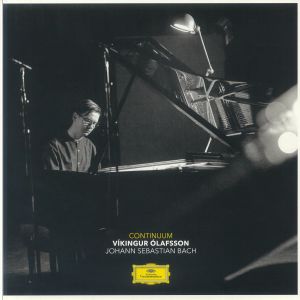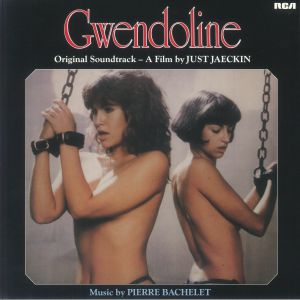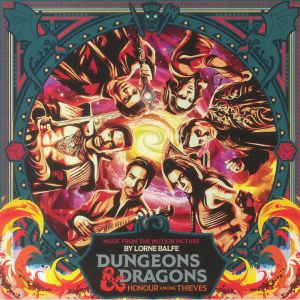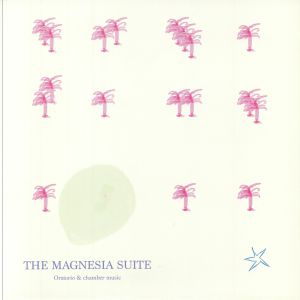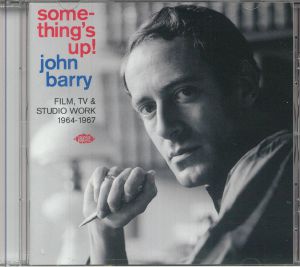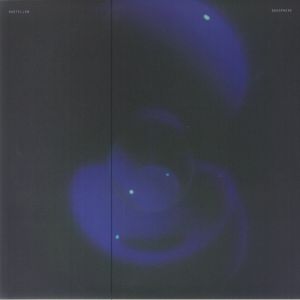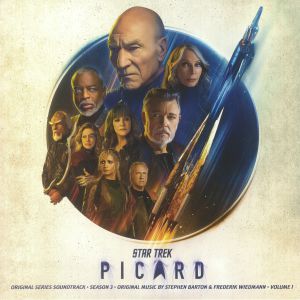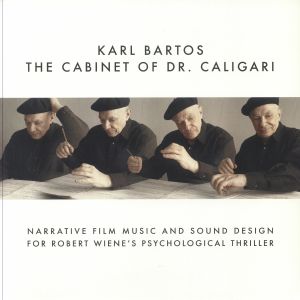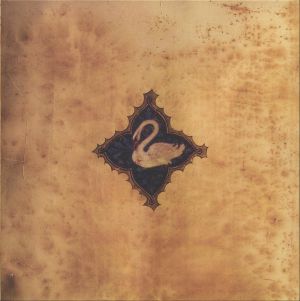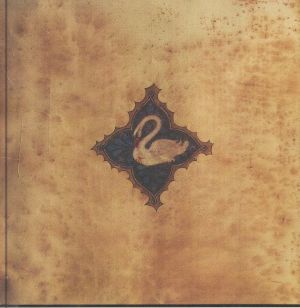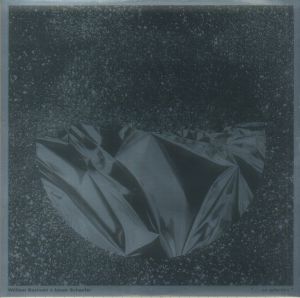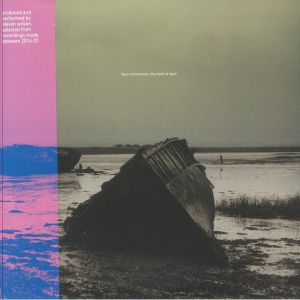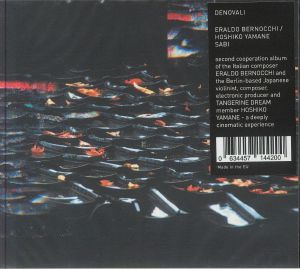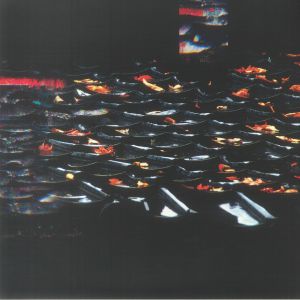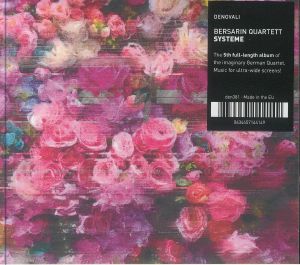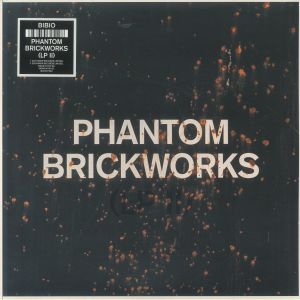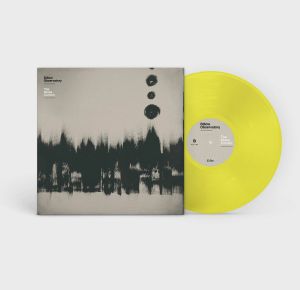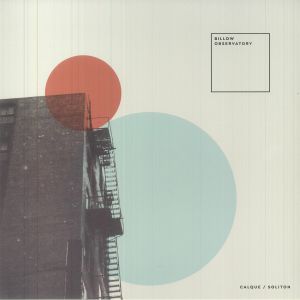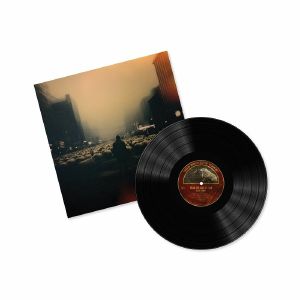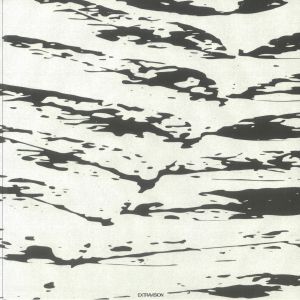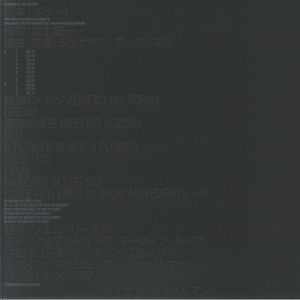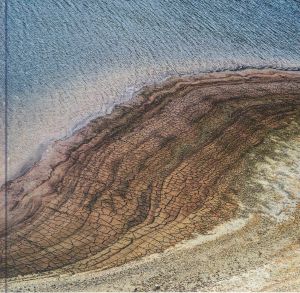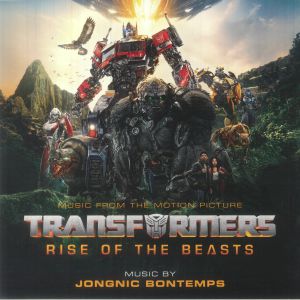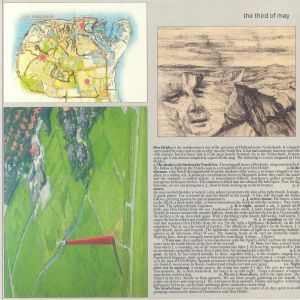Filter
在庫状況
アーティスト
レーベル
Featured
リリースタイトル
値段
タグ
Back catalogue: Modern Classical
Juno's full catalogue of Modern Classical
シングル
Review: Few artists have had such a global impact on electronic music than Thomas Bangalter, the legendary DJ, producer and songwriter who is best known as one-half of the former dance titans Daft Punk. He has many more skills up his sleeve though as he has proven since leading the duo. One is writing soundtracks such as this one, Chiroptera, for Acte 2: Retour a la Caverne, which was a JR creation with choreography from Damien Jalet. It was performed in Paris in front of the Opera de Paris (Opera Garnier) on November 12th, 2023 and involved more than 150 dancers. You can now relive it musically with this limited 12".
… Read more in stock $18.44
Dessus Oben Alto Up (180 gram vinyl 12" + MP3 download code)
Cat: MARIONETTE 25LP. Rel: 19 Nov 24
Review: This EP is the first collaborative work by Andrea Belfi and Jules Reidy. Berlin-based and hailing from Italy and Australia respectively, the duo blends compositional precision with improvisational freedom. During a residency at Berlin's Callie's-a 19th-century factory turned arts space-they and engineer Marco Anulli crafted four expansive tracks in which Belfi's masterful drumming interlaces with Reidy's shimmering guitars and electronic textures. The opener layers just-intoned guitar figures over delicate brushwork and climaxes with a synthetic surge and tracks like 'Oben' and 'Alto' explore shifting grooves, propulsive rhythms and dynamic soundscapes.
… Read morePlayed by: Kaoru Inoue
in stock $24.32
There Is Space Under Your Seat (hand-numbered red vinyl 7" + insert + postcard + MP3 download code)
Cat: CIS 136. Rel: 17 Apr 23
Review: Apparently James Adam Brown had one very definitely theme in mind with There Is Space Under Your Seat. Put simply, he wanted to explore aural interpretations of the human desire to create mental breathing room by pausing emotions to process feelings when circumstances become overwhelming. And, let's face it, they frequently have a habit of doing just that.
Recorded at ICP Studios in Belgium, after demos were laid down in his own facility deep in the stunning Yorkshire Dales, it's hard to imagine a more fitting setting for these ideas to form. A place that's equal parts bleak and beautiful, and certainly remote (in UK terms, at least). So what we have here is sometimes eerie, always stunning, packed with spatiality and a tangible emotional quality you will not be able to escape from.
… Read moreRecorded at ICP Studios in Belgium, after demos were laid down in his own facility deep in the stunning Yorkshire Dales, it's hard to imagine a more fitting setting for these ideas to form. A place that's equal parts bleak and beautiful, and certainly remote (in UK terms, at least). So what we have here is sometimes eerie, always stunning, packed with spatiality and a tangible emotional quality you will not be able to escape from.
Played by: Juno Recommends Ambient/Drone
in stock $10.05
Review: Matti Bye is Between Darkness & White Snow on this deeply absorbing new 12" on Northern Electronics. It comes as four separate pieces that all play out as part of a larger narrative. First up is 'I', a quiet, gloomy landscape on a grey winter's day with the gentle sound of flowing water and muted synth modulations placing you right in the middle of it. 'II' has more presence, a growing sense of melancholy and unease and 'III' allows a little heavenly light into the mix to gently uplift. The final chapter has a feeling of hope with subtle keys radiating from deep inside.
… Read more in stock $26.54
アルバム
Hardanger (hand-numbered vinyl LP in spot-varnished sleeve limited to 200 copies)
Cat: LAAPS 040LP. Rel: 07 Feb 25
Review: Hardanger is a collaboration between Mariska Baars, Niki Jansen and Rutger Zuydervelt. Named after Jansen's Hardanger fiddle, the album expands on Baars and Zuydervelt's established chemistry after beginning as Jansen's improvisations with Baars adding vocals and guitar, all later shaped by Zuydervelt into two long-form tracks-one an electro-acoustic collage, the other more meditative. Baars blends ambient and folk and is known for collaborating with artists like Peter Broderick, while Jansen is a folk violinist and Zuydervel's prolific output as Machinefabriek is well worth checking as are his film scores and collabs as Piiptsjilling and Fean with Baars.
… Read more in stock $28.78
Bach: Concertos (gatefold 2xLP)
Cat: 486397 7. Rel: 04 Apr 24
Review: In 2018, three-time Grammy Award-winning violinist Hilary Hahn returned to classical label-behemoth Deutsche Grammophon (her usual) for an official album of interpretations of J.S. Bach's violin concertos, in collaboration with Jeffery Kahane and the Los Angeles Chamber Orchestra. The much-celebrated fiddler laid down a stunning, full rendition of the concertos, all recorded at the Colburn School Of Performing Arts and which added to her huge repertoire. This stealth reissue from the classical music giant bolsters Hahn's rep once more.
… Read more in stock $33.52
Continuum (heavyweight vinyl LP + insert)
Cat: 486607 3. Rel: 17 Oct 24
Das Alte Jahr Vergangen Ist (feat Hally Oddy Magnusdottir - BWV 614 - Arranged Kurtag For Piano 4 Hands) (4:50)
Review: Continuing his lengthy tour of JS Bach's works, Vikingur Olafsson shares his next mini-album: a recording of several Bach 'singles' - that's individual pieces rather than 45s - performed live at Reykjavik's Harpa concert hall in January 2024. Building on his deep-rooted passion for the works of the pioneering German composer, the classically trained Olafsson lends his own subtleties to four of Bach's cantatas, as well as two further sacred songs, amounting to a more than touching suite. Chief among these in our estimation is 'Komm, suBer Tod, komm selge Ruh' ('Come, sweet death, come, blessed rest'), which was likely written by Bach in the twilight of his life: the theme alone is morbid and tearjerking enough, yet Olafsson's dexter Icelandic hands bring a trademark coldness, an exactness, that only he could summon.
… Read more in stock $33.52
The English Suites (gatefold 2xLP)
Cat: ACC 40428. Rel: 06 Nov 24
Review: After a six-year hiatus, acclaimed pianist Zhu Xiao-Mei returns with a personal and truly masterful recording of J.S. Bach's English Suites which completes her journey through Bach's piano works. This release marks a milestone in her extraordinary career and reflects years of preparation and a deep, daily relationship with Bach's music. Zhu Xiao-Mei's interpretation reveals the suites' rich subtleties and timeless essence, all of which are shaped by her dedication to living closely with each piece. Despite pandemic challenges and a meticulous search for the perfect piano, this recording captures her authenticity and the wonderfully contemplative nature of Bach's music.
… Read more in stock $42.76
Gwendoline (Soundtrack) (reissue) (limited 180 gram audiophile silver & black marbled vinyl LP)
Cat: MOVATM 396C. Rel: 11 Feb 25
Review: A lush and evocative blend of orchestral grandeur and dreamy 80s synth work, this soundtrack is a sonic journey into steamy sci-fi. The opening theme glides effortlessly between delicate baroque flourishes and pulsing electronic rhythms, setting the tone for an adventure that is both mysterious and seductive. Sweeping string arrangements intertwine with shimmering synthesisers, evoking a sense of exotic wonder while maintaining an undeniable sense of nostalgia. The compositions balance classical sophistication with experimental textures, capturing the film's mix of pulp adventure and fantasy-tinged eroticism. Tracks shift from ethereal, atmospheric moments to more urgent, rhythm-driven passages, mirroring the story's dramatic turns. The use of vintage synth tones alongside lush orchestration results in a sound that feels both timeless and unmistakably rooted in its era. Remastered from pristine stereo master tapes, this edition restores every intricate detail with warmth and clarity. An exquisite rediscovery of an underrated gem.
… Read more in stock $36.60
Dungeons & Dragons: Honor Among Thieves (Soundtrack) (gatefold 2xLP)
Cat: 455018 92. Rel: 27 Jul 23
Review: Welcome to hell. Coinciding with the popular release of the first ever film in the franchise, the original score for the 2023 fantasy adventure film Dungeons & Dragons: Honor Among Thieves finally drops via Mercury. Directed by Jonathan Goldstein and John Francis Daley, and based on the myriad tabletop game, the film follows a group of thieves who embark on a quest to steal a legendary artifact from a powerful wizard. Composed by composer Lorne Balfe, the soundtrack is monumental, with a whopping 49 tracks of epic, dark-fantastical music blending an impressive array of orchestral and electronic elements. There's also a credits version of 'Wings of Time' by Tame Impala on there.
… Read more in stock $37.58
Review: This is the second album by Balmorhea for the prestigious classical label Deutsche Grammophon, following their acclaimed 2020 release The Wind. The Austin, Texas duo - composed of Rob Lowe and Michael A. Muller - create cinematic and atmospheric music in a world entirely of its own; a shifting blend of gothic classical, folk, ambient, and post-rock, which rarely feature vocals, and instead thrive on the haunted immersions of the compositions alone. Their new LP Pendant World is a collaborative effort that features contributions from several guest artists and contemporary stars: cellist Clarice Jensen, violinist Hilary Hahn, pianist Nils Frahm, singer-songwriter Jose Gonzalez, and electronic producer Rival Consoles. A stunning mesh of sounds, we're not sure where electronic ends and acoustic begins, owing to the album's intended theme of connection, transformation, and evolution.
… Read more in stock $30.16
The Magnesia Suite (LP + booklet limited to 250 copies)
Cat: R 108LP. Rel: 14 Nov 24
Review: Allan Gilbert Balon's debut full-length album, The Magnesia Suite, released by Recital, is a mesmerising and enigmatic work that fuses avant-garde jazz, experimental sound collage and intimate vocal experiments. A Guadeloupe-born composer and visual artist, Balon brings a deeply personal and cryptic narrative to this album, weaving together disparate sonic elements into a beguiling and surreal journey. Opening with 'Stella Maris', the album immediately wrongfoots the listener, blending organ drones and twisted chorals that evoke a subversive take on sacred music. Tracks like 'Lustras' introduce grotty tape recordings, shortwave transmissions, and Balon's slow-motion piano playing, creating a bizarre yet haunting sense of prayer. This patchwork approach, full of field recordings and mysterious sounds, captures a feeling of coastal tranquility and exploratory reverence. The standout track, 'Pleuro Delez Waltz', which initially caught Recital's attention, blends Balon's idiosyncratic piano style with disorienting wails and unconventional percussion. The album concludes with 'Ogadia', where ragtime-influenced piano meets distant saxophone, resolving the outsider-jazz soundscape. The Magnesia Suite is an album of surprising juxtapositions and textures.
… Read more in stock $43.03
The Primevals (Soundtrack) (ice blue & lilac vinyl 2xLP)
Cat: SILLP 1745. Rel: 16 Jul 24
Review: When a Yeti is killed by a group of Sherpa, a bunch of university scientists travel out to Nepal in the hope of discovering where the creature came from. There, they team up with a rough and ready tracker, and head out from a remote village into the great white wilderness beyond. Avalanches, prehistoric species, and ancient hominids and alien reptiles all follow as the plot thickens and freezes. If you didn't catch The Primevals when it first arrived on screens, we implore you to watch the 2023 animated sci-fi action romp. Stop motion animator David Allen co-wrote and directed it, spending more than 50 years on the development which sadly completed after he died. It's a family friendly epic that looks gorgeous and plays out compellingly, thanks in no small part to the Richard Bland soundtrack. An homage to the great adventure epics that once defined cinema, the score is classic cinematic stuff, a classical overture of bombastic chase sequences, serene harmonies and pin-drop tension.
… Read more in stock $38.00
Review: Something's Up! is a masterful compilation that features the eclectic brilliance of John Barry's film scores. Curated by Saint Etienne's Bob Stanley, this collection highlights Barry's transition from a British arranger to a pop icon, renowned for defining the sound of the Cold War spy movie era. Focusing on music from 1964 to 1967, this album features Barry's iconic work on James Bond classics like Goldfinger, Thunderball, and You Only Live Twice, cementing his influence on the spy genre. Beyond Bond, Barry's contributions to films such as The Ipcress File and The Quiller Memorandum exemplify his ability to blend tension with sophistication. The collection also includes less-celebrated but notable scores like those for King Rat, The Chase and Seance on a Wet Afternoon, reflecting Barry's diverse range and ability to craft memorable themes beyond the mainstream. Barry's music, characterised by its lush orchestration and emotive power, extended its reach from the silver screen to the vinyl, resonating with listeners even if they hadn't seen the films - and his exceptional talent and enduring legacy in film music is on full display here,
… Read more in stock $15.37
Review: Contemporary classical seems to be having a bit of a moment in the sun right now as it breaks out of its traditional confines and makes a mark on the wider world. Bartellow, who is one-third of the Tambien project and also goes by the name Beni Brachtel in the classical scene, is back on ESP Institute with a second full-length. Noosphere brings together parts of some of his theatrical scores for WUT, Odipus and Antigone and Der Zauberberg amongst others. It takes in cues from Baroque and Impressionism with plenty of sweeping drama and moments of intense emotionality across four sides of sound.
… Read morePlayed by: Kaoru Inoue
in stock $33.52
Star Trek: Picard Season 3 Volume 1 (Soundtrack) (gatefold sky blue & white burst vinyl 2xLP)
Cat: LKSO 36331. Rel: 10 Aug 23
Review: Star Trek Picard is a TV series that has been as healed for its great soundtrack as much as any of the on screen action. The award winning British composer Stephen Barton (also known for his work on Star Wars Jedi Fallen) is behind it and his work on the third season might be the best yet. Pulled out of retirement once more, Jean-Luc Picard (played by the legendary Patrick Stewart) seeks help from Captain Riker to answer a distress call and uncovers a conspiracy reaching to the furthest corners of the Federation as well as the unwelcome return of an old foe. Thematic is dramatic, absorbing and emotive and is all captured on this record.
… Read more in stock $39.11
Review: The story goes that, back when he was a core member of Kraftwerk, Karl Bartos helped create the band's own theme for Fritz Lang's often-soundtracked Metropolis. Bartos has an enduring fascination with the more daring artwork of the early 20th Century, and so he took on the challenge of creating a new score for Robert Weine's landmark silent movie The Cabinet Of Dr. Caligari. Using an assortment of synths in his Hamburg studio, Bartos creates a symphonious soundtrack which shows his passion for the subject matter in stark detail. A must-check for fans of Bartos and the wider Kraftwerk phenomenon, as well as fans of Weine's pioneering psychological thriller.
… Read more in stock $17.88
Review: Musician, writer and sometime member of Kraftwerk Karl Bartos wrote The Cabinet Of Dr Caligari as a tribute to the iconic 1920 silent horror film whose original music score had long been lost. Through electronic compositions, Bartos skilfully captures the eerie atmosphere and psychological depth of the movie, enhancing its haunting narrative with his sonic reinterpretation. The album immerses listeners in a world of suspense and mystery, blending ominous synth melodies with pulsating rhythms and cinematic soundscapes. Bartos' masterful fusion of retro-futuristic aesthetics and contemporary electronic music was made after he dug deep into his own archives to recreate epics he wrote as a young classical musician and offers an all-new perspective on the original soundtrack.
… Read more in stock $38.00
The Cabinet Of Dr Caligari (limited hand-numbered vinyl 2xLP + DVD box + booklet)
Cat: BB 400LPBOX. Rel: 26 Feb 24
Lunatic Asylum
Review: While Fritz Lang's Metropolis has enjoyed reams of revisionist soundtracks in the near-century since it was released, Robert Weine's The Cabinet Of Dr. Caligari has remained a more cult concern of Weimar-era cinema. Karl Bartos, one of the early members of Kraftwerk, has indulged his passion for the art of this unique period between world wars, when technology and art was changing as rapidly as the world around them. Employing his considerable experience and well-appointed studio to the task of re-soundtracking, Bartos has created this vibrant new score for Weine's film, pressed up here on double vinyl with an accompanying 16-page booklet.
… Read more in stock $61.11
September 23rd (limited gatefold dark blue vinyl LP (indie exclusive))
Cat: TRR 435LPC1. Rel: 10 Oct 24
Review: Originally recorded in September 1982, September 23rd would likely not recognise the DUMBO neighbourhood of Brooklyn in which it was conceived. Post-industrialisation, the area became known as a hotbed for artists due to the inexpensive loft spaces up for grabs, but today has been gentrified thanks to its position - Down Under Manhattan Bridge Overpass. One thing that hasn't changed in that time is just how spectacular William Basinski's pieces are. Comprising two parts, original piano sections played by close friend and world famous drag artist John Epperson (AKA Lypsinka) were recorded onto a handheld cassette machine, before being fed through a Frippertronics loop and feedback loop tape delay system, with incredible results. Rich, strange sonic textures, beautiful but fleeting moments of melody and a depth that sounds like you can dive into it.
… Read morePlayed by: Juno Recommends Ambient/Drone
in stock $37.16
September 23rd (gatefold LP)
Cat: TRR 435LP. Rel: 10 Oct 24
Review: September 23rd is the debut release of William Basinski's new Arcadia Archive series and it features a previously unreleased gem recorded in September 1982 in his first loft in Brooklyn's pre-gentrified DUMBO. This early work, derived from a high school piano composition, evolved significantly after Basinski recorded it using a portable cassette deck on a piano owned by his neighbour, John Epperson at 351 Jay Street. Initially unimpressive, the piece transformed through Basinski's use of the John Giorno/William Burroughs cut-up technique and Frippertronics loop system to yield remarkable results. This discovery adds a captivating layer to Basinski's nearly five-decade career.
… Read morePlayed by: Juno Recommends Ambient/Drone
in stock $30.16
Review: September 23rd is the first release in William Basinski's new Arcadia Archive series. Recorded in September 1982 in his first loft in the DUMBO neighborhood in Brooklyn, New York, September 23rd is a recently unearthed early entry in what has become a hugely inspirational and influential catalogue. Built from a piano piece that Basinski composed in high school in the mid-1970s, September 23rd quickly evolved into a vastly different work, upon its revisitation. Using the John Giorno and William Burroughs cut-up technique, Basinski fabricated an elaborate Frippertronics and feedback loop tape delay system, resulting in the quiet but dramatic set of sounds and resounds you hear here.
… Read more in stock $16.48
On Reflection (limited silver vinyl LP + MP3 download code)
Cat: TRR 372LPC1. Rel: 20 Oct 22
Review: The Disintegration Loops man William Basinski has linked up with acclaimed experimental composer Janek Schaefer for this new collaborative record on Temporary Residence Limited. What they cook up is a suite of very unassuming songs that are all dedicated to the late and great avant-garde composer Harold Budd. The record was eight years in the making and is as timeless as ambient gets with 42 minutes of gently undulating sonic terrain gently and quietly detailed with subtle skill and placid melodies. It is as beautiful as it is absorbing once you really give yourself over to the sounds.
… Read morePlayed by: Joachim Spieth, Juno Recommends Leftfield
in stock $28.50
The Itself Of Itself (gatefold 2xLP + booklet with obi-strip)
Cat: LUMB2LP 036. Rel: 19 Dec 24
Review: Selected from a decade of recordings, this release showcases Bass Communion at its most experimental and texturally rich. Tracks are layered with analogue imperfectionsitape hiss, wow and flutter, static noiseithat are transformed into haunting soundscapes. The mellotron, buried beneath layers of imagined rust and dirt, adds an eerie, organic depth to the fragmented drones and spectral noise. The carefully constructed album feels like an excavation of forgotten sonic artefacts, with each piece offering a narrative rooted in decay and texture. Pressed on 2xLP, this is a striking addition to the Bass Communion catalogue, perfect for fans of sonic exploration.
… Read more in stock $26.52
Cat: 500875 61307. Rel: 05 Nov 24
Review: The new Disney+ TV miniseries Agatha All Along sees Kathryn Hahn reprise her role as Agatha Harkness, a central superheroine and witch of the Marvel Comics universe. A sequel to the live-action miniseries WandaVision, Agatha All Along charts Harkness' travails of escape and persecution, in a contemporary magic realist narrative blending witch coven and superhero themes. Here the soundtrack to the new series appears in tasteful and fitting fashion and in LP format, featuring such well-chosen as 'Hava Nagila' by Traditional, 'Visions' by Plastic People, 'Season Of The Witch' by Donovan and 'Heads Will Roll' by the Yeah Yeah Yeahs.
… Read more in stock $31.29
Soft Octaves (180 gram red & blue & black smokey vinyl LP + MP3 download code limited to 200 copies)
Cat: PITPV 060. Rel: 07 Feb 24
Review: California's James Bernard is a much-loved regular on this label as well as being a veteran of the wider ambient scene who has been hard at it for more than three decades. His latest outing on Past Inside The Present with Anthene (aka Brad Deschamps of Toronto) is Soft Octaves, an album that finds them crafting a series of sounds using electric six-string bass. It has a huge range from the deepest depths to the wispiest of highs and each of the tracks here was recorded in one single take. The results are spellbinding indeed and the range of the bass's sonic ability is astonishing as it sounds at times like a cello, at others woodwind and is always intriguing.
… Read more in stock $18.44
Review: After five years apart, Italian composer Eraldo Bernochi and Japanese violinist, electronica producer and current Tangerine Dream member Hoshiko Yamana return with a sequel to their much-loved 2020 album Mujo. Described by the pair's label, Denovali, as "a deeply cinematic experience", Sabi cannily combines the slow-burn, trance-inducing synthesizer sequences of Tangerine Dream, the intergalactic electronic expressiveness of ambient techno, the thematic movements of modern classical, Yamana's emotive violin motifs and the spaced-out ambient iciness often associated with Geir Jensson's Biosphere project. It's a genuinely brilliant album all told, with the pair smartly sashaying between hazy melancholia, string-laden creepiness and picturesque aural colour.
… Read more in stock $19.84
Sabi (180 gram vinyl LP + MP3 download code)
Cat: DEN 383LP. Rel: 22 Dec 23
Review: Denovali presents the second cooperation album by Italian composer, arranger, producer and guitarist Eraldo Bernocchi, in collaboration with Berlin-based Japanese violinist, composer, electronic producer and Tangerine Dream member Hoshiko Yamane. Bernocchi and Yamane have come together here for the second time after finding inspiration in the Japanese concept of "sabi" - an aesthetic that celebrates the beauty of impermanence and decay. It is often associated with the simplicity, austerity, and solitude found in nature, and is said to evoke a sense of melancholy, nostalgia, and reverence for the passage of time. The record, to match, is a unique blend of electronic and acoustic music, with Bernocchi's pulsating textures and Yamane's haunting treated violin melodies weaving together to create a captivating and emotional sonic landscape.
… Read more in stock $29.35
Review: Bersarin Quartett is the work of Thomas Bucker, who since 2012 has released his flagship ambient project via Denovali. The Munster-based artist employs a grandiose orchestral lilt to the compositions on Systeme, threading considered sound design touches in amongst the sweep and swell of strings that rise from his imaginary quartet of players. It's neo-classical with a plaintive, soundtrack-ready quality, but as ever Bucker weaves tension, dissonance and texture in amongst the foreground melodic content to make for a richly compelling listen.
… Read more in stock $19.84
Systeme (180 gram vinyl 2xLP + MP3 download code)
Cat: DEN 381LP. Rel: 10 Dec 24
Review: Germany's Bersarin Quartett - the imaginary invention of Munster musician Thomas Bucker - drops its fifth album Systeme. Whether the sole product of one man's imagination or the figurative invocation of orchestra-as-tulpa, it doesn't matter. This is an album of full-on metamodern electro-orchestral post-generations, the likes of which generations prior would've never heard before. Described by Denovali as "if Talk Talk, Tim Hecker and Skrillex were making music together and challenging our tolerance for ambiguity", we find this comparison apt if not eliding the real thrust of the record; the likes of 'Liebe' and 'Autopoesie' evidently draw on far more influences than mere composers, building a strikingly oneiric repertoire of crystalline fluctuations and timestretched neoclassical romances.
… Read more in stock $35.31
All Quiet On The Western Front (Soundtrack) (limited numbered 180 gram audiophile translucent smokey vinyl LP + 4-page booklet)
Cat: MOVATM 369C. Rel: 04 May 23
Review: Music on Vinyl gives the full treatment to Volker Bertelmann's epic score to All Quiet On The Western Front and serves it up on limited and numbered 180-gram audiophile transparent smokey vinyl with a four-page booklet featuring movie still to boot. Set during World War I, the film follows an idealistic young German soldier and received a leading 14 nominations at the 76th British Academy Film Awards, including one for Best Original Score. It is a truly immersive listen that captures the range of emotions conveyed in the film.
… Read more in stock $37.16
Mermaids (LP + postcard limited to 300 copies)
Cat: TSR 27LP. Rel: 05 Oct 23
Review: Natalia Baylis based her first album for Touch Sensitive around the fortuitous discovery of an Italian-made CRB Elettronica Ancona Diamond 708 E organ at the recycling centre, in what now seems like a fated outcome for the Irish ambient artist. Feeding the wonky sound of the instrument into swirling pools of processing, she used one of her father's old photos of three ladies bathing in the sea to set her angle of approach - and so Mermaids came to be. Enchanting, mysterious and flowing like the ocean, we couldn't think of a more fitting title for this mesmerising album.
… Read morePlayed by: Juno Recommends Ambient/Drone
in stock $24.87
Review: Originally released in 2017, Phantom Brickworks by Bibio (Stephen James Wilkinson) was an ambient exploration of abandoned sites around Britain, blending improvisation and composition to capture the lingering human presence in decaying locations. Now, the sequel, Phantom Brickworks (LP II), arrives as a ten-track double LP, complete with an MP3 download code. Mastered by Guy Davie and cut by Hendrik Pauler, this new record shifts focus to more intriguing landscapes, both real and legendary. From vast scars on the terrain to memories buried in folklore, Bibio's soundscapes evoke spaces lost to time but still resonant in history.
… Read morePlayed by: Juno Recommends Ambient/Drone, Charles Webster
in stock $33.52
The Glass Curtain (limited transparent yellow vinyl LP)
Cat: FLT 110LPC1. Rel: 24 Apr 25
Review: Billow Observatory returns to the fully ambient realms of their 2012 debut with a deeply introspective, percussion-free release that drifts through spectral soundscapes. Created by Jason Kolb and Jonas Munk, the duo's transatlantic collaboration has matured across four full-length albums marked by precision and emotional depth. Here, abandoning traditional structure, the album instead looks to harness the power of chance and randomness with shimmering guitar textures that crackle and dissolve like dust in water. It evokes a world slightly out of sync that is brooding, haunting and beautifully immersive while underlining their place as masters of refined, atmospheric ambient music.
… Read more in stock $24.32
Review: Billow Observatory is a collaborative project from Detroit-based Jason Kolb and Denmark's Jonas Munk which explores ambient with a certain post rock sensibility. Following gracefully on from 2022's Stareside album, this new LP in fact gathers together two separate EPs from the duo and presents them as one listening experience. There's a delicacy to tracks like 'Garden of Four Streams' which speaks to Japanese environmental music, but still the projects maintains its affinity for ethereal chambers of sound as much as fragile foreground sonic figures. This is a high-grade strain of ambient with a depth of sound which will capture your attention from the very start.
… Read more in stock $23.46
Review: Way back in 2006, when for various reasons they were suffering with insomnia, the Black Dog began making music when sleep deprived - a process the Sheffield trio say made their material more emotive and vulnerable. At various times since, they've returned to the idea, resulting in this album - a collection of immersive musical movements that frequently blur the boundaries between the enveloping ambience the IDM pioneers have become famous for in recent years, and (synth) string-laden neo-classical compositions. Of course, it's not all picturesque sonic beauty, with the paranoia and slow-thinking darkness sometimes associated with periods of sleep deprivation being translated into trippy, melancholic or sonically intense soundscapes rooted in drone and dark ambient. Throughout, it remains surprisingly emotive and - for the most part - pleasingly meditative.
… Read more in stock $15.09
Ghost (hand-numbered CD + download code limited to 200 copies)
Cat: PITP 55CD. Rel: 15 Nov 24
Review: New York-based Black Swan returns with an impressive ninth album on ambient gold mine Past Inside The Present. The is the CD version (we also have it on cassette) and it's a record that blends analogue recording techniques to blur the lines between memory and reality. Influenced by musique concrete, ambient and dark drone traditions, the album is a continuous suite of 20 tracks that reflect a spirit navigating the physical world. Some are short vignettes while others evolve over longer play times with layered intensity. Standouts include 'Like Dust, I Linger' with its tender warble and 'Ad Infinitum' which is lit up with shimmering synths. It's another triumphant work from Black Swan.
… Read morePlayed by: Joachim Spieth, Juno Recommends Ambient/Drone
in stock $12.85
Ghost (cassette limited to 50 copies)
Cat: PITP 55CASSETTE. Rel: 08 Nov 24
Review: Using a variety of tape stocks, Black Swan creates a haunting atmosphere that evokes the sensation of uncovering long-lost, sacred recordings hidden in time on his ninth album, Ghost. The New York-based artist reveals that he was inspired by musique concrete and ambient while making the record, which is made up of 20 pieces that all form a continuous suite. Each track varies in length and complexity from short and sweet sketches to more elongated studies and that are made from intense layering and harmonic surges using an array of tape stocks. The result is a haunting, unearthly atmosphere that sounds perfect in this cassette format.
… Read morePlayed by: Juno Recommends Ambient/Drone
in stock $12.58
From The End Of Time (limited audiophile vinyl LP)
Cat: PITP 48. Rel: 07 Mar 25
Review: This new record from Black Swan evokes a desolate post-collapse world that is detailed with haunting choirs, mangled tapes and distant industrial sounds. The album unfolds like a requiem by pulling beauty from the ruins of a collapsed society. With an hour-long narrative, it shifts between rippling hums and plaintive quivers of old cassettes, slowly revealing a heart that beats beneath the crimson haze. Tracks like 'Overture' and 'Back to Dust' offer cinematic grandeur and mournful exploration, while 'Pseudotruth' and 'New Gods' introduce eerie uncertainty. In the end, the album serves as a haunting meditation on loss, memory and the fragility of civilisation.
… Read more in stock $23.75
Review: James William Blades' score Pare De Sufrir comes via AD 93 and serves as the official soundtrack to A.G. Rojas' film of the same name. Known for directing music videos for artists like Jamie xx and Mitski, Spanish-born, California-raised filmmaker Rojas crafted his first independent film and it's a quiet, 48-minute meditation on grief and healing. Blades' composition captures Rojas' vision without ever having watched the film and he does a fine job of creating an evocative, operatic soundscape of orchestral and choral elements. Drawing from shared personal narratives, Blades layers field recordings, strings and voices that mirror the unspoken, fragile nature of loss and renewal into an intriguing long player.
… Read more in stock $22.34
Review: After a small 2022 self-release, experimental guitarist Guy Blakeslee's therapeutic and musico-psychonautic journey is re-released here by Leaving Records in their "all genre" series. The album serves as a balm, offering a refreshing sense of space, calm and possibility like a breath of fresh air on a stifling day. It also chronicles a musician's quest for meaning and healing in the aftermath of personal and collective upheaval that captures an emotional journey with transformative resonance. Extravision is a deeply reflective work that invites listeners to explore its meditative landscapes and experience its profound sense of hope and renewal.
… Read more in stock $33.52
Influence On Dusk (reissue) (LP limited to 300 copies)
Cat: BAADM 017LP. Rel: 30 Oct 24
Review: Blue Chemise's debut LP, Influence On Dusk, re-emerges after its original 2017 release of only 105 copies as this vital reissue. BAADM makes the sought-after album widely available with remastered sound by Christophe Albertijn and updated artwork that stays true to the artist's vision. Influence On Dusk is a unique cycle of fourteen electroacoustic compositions that are mysterious, sometimes haunting, and always filled with a gentle melancholy. This reissue marks Australian artist Mark Gomes' second release on BAADM following the more romantic Flower Studies in 2021 and is one that captures his evocative, introspective style in a new light.
… Read more in stock $30.16
Rug Island (Soundtrack) ("sunset" orange marbled vinyl LP)
Cat: DEMREC 1255. Rel: 25 Oct 24
Review: Rug Island, pressed on sunset orange vinyl, is the latest musical adventure from Bluey, following the success of Dance Mode! and featuring 16 brand new tracks from the beloved series. Crafted by Joff Bush and the Bluey Music team, the album draws from episodes across seasons 1, 2, and 3, inviting listeners to explore the boundless imaginations of Bluey and Bingo. Inspired by the Rug Island episodeia whimsical place where children's fantasies come alive and adults reconnect with their inner childithis album brings that playful spirit to life. Highlighted singles include 'Octopus,' a dynamic rock collaboration with King Stingray, the lively 'Onesies,' and the fresh 'Bluey Theme Tune (Vocal Version).' Other standout tracks include the nostalgic 'Fairytale,' the sea shanty-inspired 'Explorers,' the energetic 'Muffin Drive,' and the tender 'Turtleboy.' The album sleeve features a scene from Rug Island, with a reverse side that connects to previous releases, forming a panoramic view of the Heeler family's home. Rug Island is a delightful addition to any Bluey fan's collection, full of joy and imagination.
… Read more in stock $27.11
Sakamoto (On Guitar) (180 gram vinyl LP + insert)
Cat: SQM 031. Rel: 04 Dec 24
Review: Munich-based classical guitarist and composer Jonathan Bockelmann made his mark in 2023 with his debut album Childish Mind. His journey into composition began with arrangements of pieces by Japanese maestro Ryuichi Sakamoto. These arrangements, which have previously been released digitally in three editions, are now available on vinyl for the first time. The record, presented in premium packaging with an embossed art print, showcases Sakamoto's diverse repertoire. It includes both lesser-known works like Suite for Krug and iconic masterpieces such as Bibo No Aozora. This release beautifully celebrates the timeless artistry of Sakamoto as reimagined through Bockelmann's exquisite guitar interpretations.
… Read more in stock $30.74
Review: Fresh from curating a fine compilation marking 25 years of his admirable DiN label, Ian Boddy unleashes the latest in a long-line of collaborative works. He's previously released joint studio works alongside Chris Carter, Erik Wollo and Mark Shreeve, amongst others and here is in cahoots with Parallel Worlds member (and DiN semi-regular) Dave Bessell. In true ambient fashion, Polarity boasts a two-part, near 52-minute title track: an evocative, creepy and slowly shifting fusion of modular electronic bleeps, vintage analogue synthesiser melodies, immersive chords and - for shortish blasts amongst the aural weightlessness - bubbling beats. To round off the album, the pair drifts further into deep space ambient mode via the Pete Namlook-esque 'Confluence'.
… Read more in stock $11.82
Transformers: Rise Of The Beasts (Expanded Edition) (limited numbered 180 gram audiophile green vinyl 2xLP + booklet)
Cat: MOVATM 401C. Rel: 13 Dec 23
Review: When it comes to classical and orchestral worlds things often look painfully whitewashed and very male dominated, at least in so far as conduction goes. Talk about understatements. Enter Jongnic Bontemps, one name on a growing list of incredible talent changing that stereotype up for the better. Schooled in church and jam music, formally educated in classical, to date he has been responsible for no less than 50 significant projects spanning video games, cinema, TV series, shorts and documentary films. His contribution to Transformers: Rise of the Beasts is emblematic of his dexterity, a collection that shifts between bombastic and high tech, machines supporting brass and string crescendos, then quiet, patient, and at times tense work, marking him out as a true musical storyteller extraordinaire.
… Read more in stock $43.87
Review: Den Helder is the northernmost city in Holland, is surrounded by water and borders the North Sea. With a military history dating back to the 16th century, it is also the most bombed city in the Netherlands and was nearly destroyed during World War II. The Third of May was written and recorded in 2020 over six days in an old pumping station located in the dunes of Huisduinen near Den Helder. The story behind the album is set in this historic city, weaving its tumultuous past into a vivid, imagined narrative inspired by the area's rich and tragic history. It's as much of an emotional rollercoaster as you would expect given the concept.
… Read more in stock $25.15
St Ann's (B-STOCK) (limited yellow vinyl LP + MP3 download code)
Cat: PIPE 03902LP (B-STOCK). Rel: 01 Jan 90
B-STOCK: Sleeve damaged but otherwise in excellent condition
Review: ***B-STOCK: Sleeve damaged but otherwise in excellent condition***
David Boulter returns to Clay Pipe with St Ann's, an evocative tribute to the Nottingham council estate that shaped his early years. Since his Yarmouth LP in 2020 and Lovers Walk in 2021, Boulter has focused on soundtrack work, scoring films like Volkan Uce's Displaced and Gregorio Graziosi's Tinnitus. St Ann's chronicles Boulter's childhood, contrasting the harsh conditions of the old estate with the improved, vibrant new development. The album's subtle use of guitar, double bass, vibraphone, tenor recorder, and field recordings vividly recreates the atmosphere of crumbling Victorian streets and the optimism of the post-1960s renewal. Boulter's narrative delves into personal memories, painting a poignant picture of community transformation. His reflection on moving to a new house with modern amenities, while still attending an old Victorian school being demolished, adds depth to the story. The project was deeply influenced by Boulter's emotional experience of clearing out his family home at the end of 2022. St Ann's is more than a personal memoir; it's a celebration of inner-city renewal and the enduring spirit of community. This album resonates with nostalgia, capturing the key moments of Boulter's formative years.
… Read moreDavid Boulter returns to Clay Pipe with St Ann's, an evocative tribute to the Nottingham council estate that shaped his early years. Since his Yarmouth LP in 2020 and Lovers Walk in 2021, Boulter has focused on soundtrack work, scoring films like Volkan Uce's Displaced and Gregorio Graziosi's Tinnitus. St Ann's chronicles Boulter's childhood, contrasting the harsh conditions of the old estate with the improved, vibrant new development. The album's subtle use of guitar, double bass, vibraphone, tenor recorder, and field recordings vividly recreates the atmosphere of crumbling Victorian streets and the optimism of the post-1960s renewal. Boulter's narrative delves into personal memories, painting a poignant picture of community transformation. His reflection on moving to a new house with modern amenities, while still attending an old Victorian school being demolished, adds depth to the story. The project was deeply influenced by Boulter's emotional experience of clearing out his family home at the end of 2022. St Ann's is more than a personal memoir; it's a celebration of inner-city renewal and the enduring spirit of community. This album resonates with nostalgia, capturing the key moments of Boulter's formative years.
in stock $19.10
St Ann's (limited yellow vinyl LP + MP3 download code)
Cat: PIPE 03902LP. Rel: 19 Sep 24
Review: David Boulter returns to Clay Pipe with St Ann's, an evocative tribute to the Nottingham council estate that shaped his early years. Since his Yarmouth LP in 2020 and Lovers Walk in 2021, Boulter has focused on soundtrack work, scoring films like Volkan Uce's Displaced and Gregorio Graziosi's Tinnitus. St Ann's chronicles Boulter's childhood, contrasting the harsh conditions of the old estate with the improved, vibrant new development. The album's subtle use of guitar, double bass, vibraphone, tenor recorder, and field recordings vividly recreates the atmosphere of crumbling Victorian streets and the optimism of the post-1960s renewal. Boulter's narrative delves into personal memories, painting a poignant picture of community transformation. His reflection on moving to a new house with modern amenities, while still attending an old Victorian school being demolished, adds depth to the story. The project was deeply influenced by Boulter's emotional experience of clearing out his family home at the end of 2022. St Ann's is more than a personal memoir; it's a celebration of inner-city renewal and the enduring spirit of community. This album resonates with nostalgia, capturing the key moments of Boulter's formative years.
… Read more in stock $25.43
The Falcon & The Snowman (Soundtrack) (The Bespoke Edition) (limited CD + DVD + poster + booklet + insert + photo cards in spot-varnished box)
Cat: BSPED 002BOX. Rel: 19 Aug 24
The Falcon & The Snowman (DVD)
Review: Released to acclaim in 1985, The Falcon and the Snowman recounts the extraordinary true story of Christopher Boyce (Timothy Hutton) and Andrew Daulton Lee (Sean Penn), childhood friends who betrayed their country by selling U.S. satellite secrets to the Soviets in the 70s. The film's score, crafted by jazz virtuoso Pat Metheny alongside pianist Lyle Mays, is a masterful blend of tension and melancholy, enriched by orchestral arrangements from the National Philharmonic Orchestra. The standout track, 'This Is Not America,' features lyrics by David Bowie and became one of his notable hits of the decade, reaching No. 14 in the UK. All in all, an exclusive collector's box set.
… Read more in stock $129.64

 USD
USD





